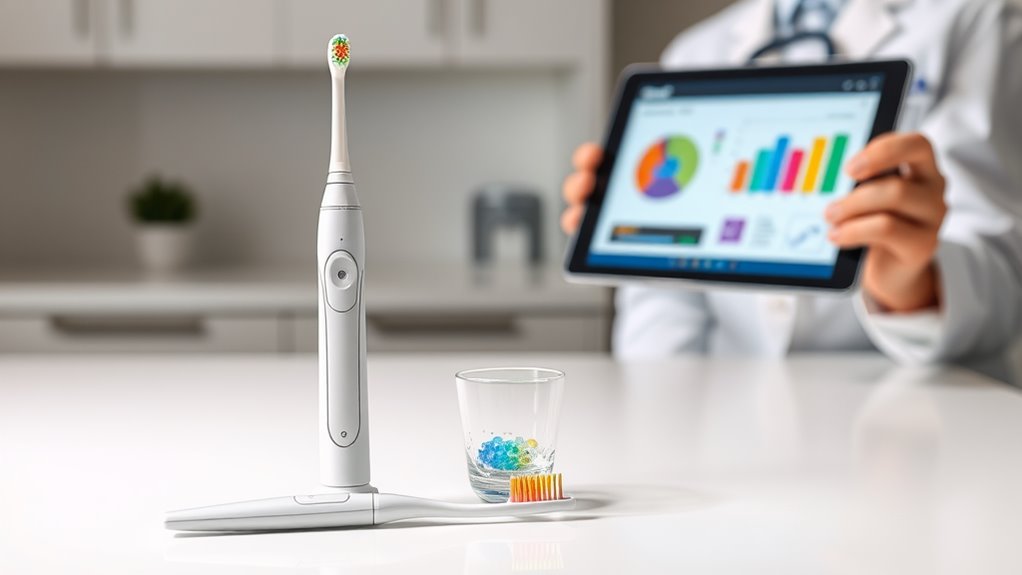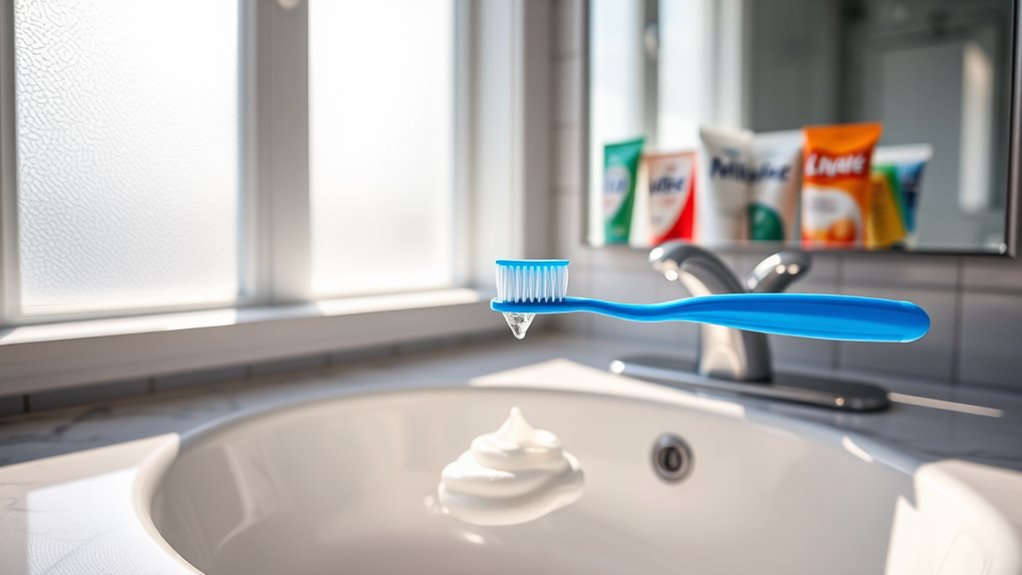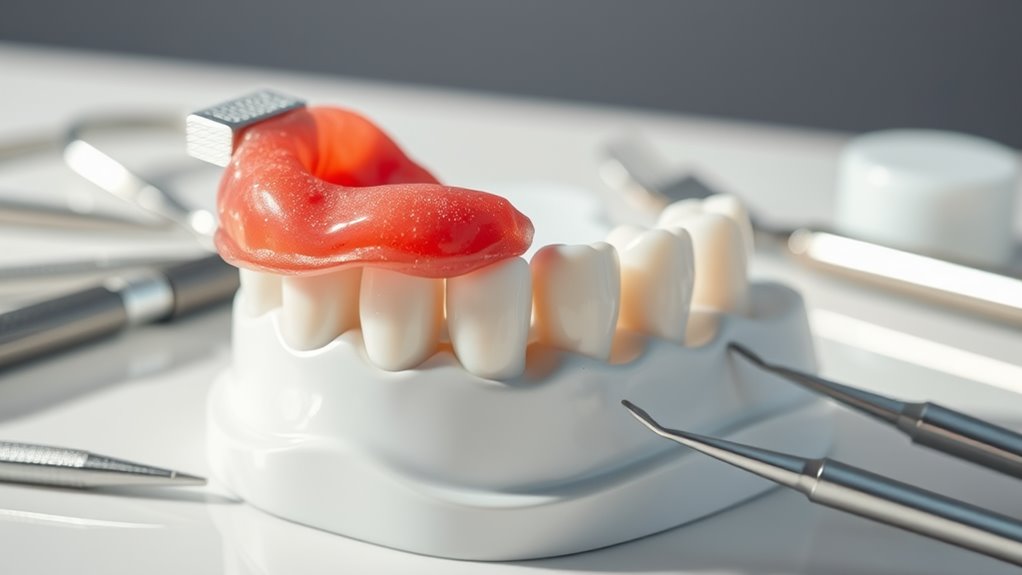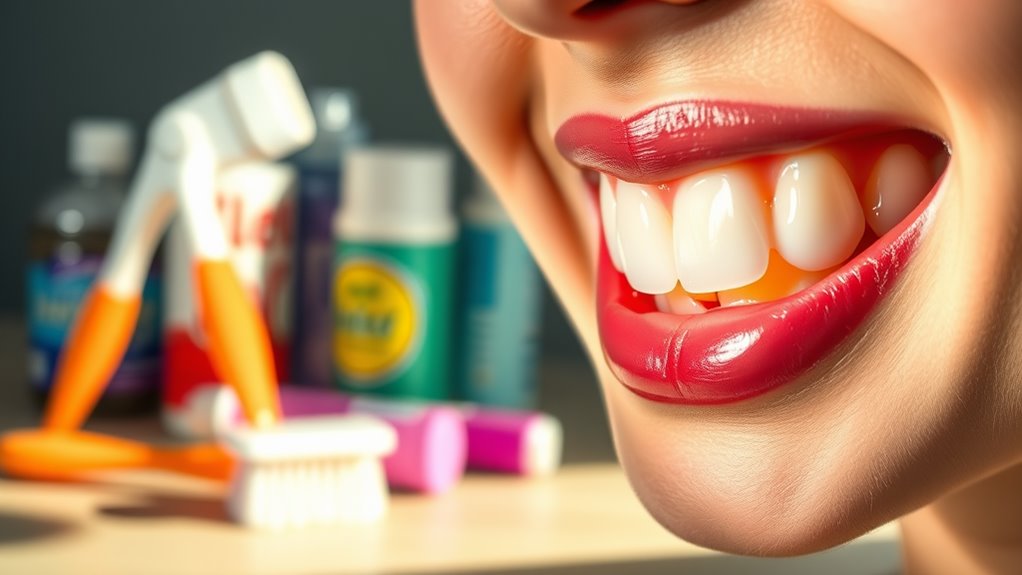Are Electric Toothbrushes Really Better. Experts Weigh In!
When it comes to oral hygiene, you might wonder if electric toothbrushes truly outshine their manual counterparts. Experts suggest that the differences in plaque removal and gum health can be significant. Yet, the debate doesn’t end there. Factors like cost, user experience, and environmental impact play crucial roles too. So, what does the latest research say, and how do dental professionals feel about this choice? Let’s explore these compelling insights together.
Clinical Research on Electric vs. Manual Toothbrushes
When it comes to choosing between electric and manual toothbrushes, what does the research really say? Studies indicate that electric brushes often outperform manual ones in terms of plaque removal and gum health.
You might be surprised to find that a variety of clinical trials support this finding, showing that electric vs. manual brushes can lead to better overall oral hygiene.
For those who crave belonging, using an electric toothbrush can also spark conversations among friends and family about dental care. Many people enjoy sharing their experiences with different brushing techniques, creating a sense of community around oral health.
While both options have their merits, the ease and efficiency of electric brushes might just make them a popular choice among your peers. Additionally, proven methods like brushing and flossing are essential for maintaining optimal oral hygiene.
Ultimately, whether you go electric or stick with manual, what matters most is how consistently you brush and care for your smile.
Dentist Recommendations and Opinions
Many dentists recommend electric toothbrushes for their ability to enhance brushing efficiency and improve oral health.
They often highlight advantages that can make a real difference in your daily routine. Here are some reasons why dentists might suggest making the switch:
-
Consistent Technique: Electric toothbrushes help maintain the correct brushing technique, reducing the risk of damage to gums.
-
Timers: Built-in timers often ensure you brush for the recommended two minutes, promoting thorough cleaning.
-
Pressure Sensors: Many models alert you when you’re brushing too hard, helping to protect your teeth and gums.
-
Variety of Modes: Some electric toothbrushes offer modes specifically designed for sensitive teeth or gum care, catering to individual needs.
Cost Considerations: Initial Investment vs. Long-Term Value
While dentists promote the benefits of electric toothbrushes, it’s important to consider the financial aspect of making the switch. The initial investment can be steep, with some models costing significantly more than traditional brushes. You might wonder if that price tag is worth it.
Think about your dental health in the long run. Electric toothbrushes often come with features that can enhance your oral care routine, potentially saving you money on dental bills down the road. Furthermore, maintaining good oral hygiene supports overall health and can prevent serious health issues that may arise from poor dental care.
You’ll find that many electric options have replaceable heads, which can be more convenient and effective than buying new manual brushes regularly.
When you weigh the upfront cost against the potential long-term savings, it’s clear that investing in an electric toothbrush can be a smart choice.
Ultimately, you’re not just buying a toothbrush; you’re investing in a healthier smile and a more confident you.
Practical Benefits of Using Electric Toothbrushes
One of the key advantages of using electric toothbrushes is their ability to provide a more thorough clean compared to manual brushing. With their powerful bristle movements, you can tackle plaque and debris more effectively.
Plus, you’ll enjoy some practical benefits that enhance your oral care routine:
- Built-in Timers: Ensure you brush for the recommended two minutes, promoting better habits.
- Pressure Sensors: Help you avoid brushing too hard, protecting your gums from damage.
- Multiple Modes: Tailor your brushing experience for sensitive teeth, whitening, or gum care.
- Easy to Use: Ideal for those with limited dexterity, making oral hygiene accessible for everyone.
These features not only elevate your brushing game but also foster a sense of community among users who prioritize their dental health. Additionally, using an electric toothbrush can help you maintain proper brushing techniques, which is crucial for preventing plaque buildup and gum disease.
User Experience: Ease of Use and Effectiveness
When you switch to an electric toothbrush, you’ll likely notice how easy it’s to achieve a thorough clean. The gentle vibrations and rotating bristles do most of the work for you, allowing you to focus on guiding the brush along your teeth and gums.
You’ll feel more confident knowing you’re following dentist-recommended techniques without the struggle.
Many find the built-in timers helpful, ensuring you brush for the right amount of time. Plus, with various modes tailored to your needs—like sensitive or whitening—you can customize your experience.
You might even enjoy the fun factor; electric brushes come in vibrant colors and designs that resonate with your personality.
Joining others in this trend can foster a sense of community, as you compare your experiences and tips. Embracing an electric toothbrush can transform your routine into a shared journey toward better oral health and connection with others who care just as much. Additionally, using soft-bristled toothbrushes is essential for protecting your enamel and gums.
Environmental Impact of Toothbrush Choices
As you consider your dental hygiene options, the environmental impact of toothbrush choices becomes increasingly important.
You mightn’t realize that your toothbrush can contribute to plastic waste, but it’s true. Here are some key factors to think about:
-
Material Matters: Traditional plastic toothbrushes can take hundreds of years to decompose.
-
Electric Toothbrushes: While they last longer, they often use non-recyclable parts and batteries.
-
Eco-friendly Alternatives: Bamboo toothbrushes are biodegradable and a great option for reducing waste.
-
Recycling Programs: Some companies offer take-back programs for used toothbrushes, helping keep plastics out of landfills.




